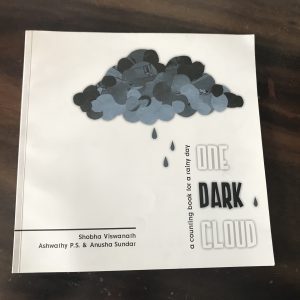Puberty is an important milestone in the lives of children. Many parents cringe at the thought of having to talk about puberty and related physical and emotional changes with children. However, in an age where access to information is a click away, parents need to ensure that their children get the correct and age-appropriate information. Sexuality Educator Counsellor Niyatii N Shah’s books on puberty seek to demystify the process for children. Informative and simple to understand these are a must-read for tweens and teens…and parents!
Titled When Girls Grow Up and When Boys Grow Up, both corresponding to the respective genders, the duo aims to demystify puberty. Bookedforlife chats with Niyatii N Shah to know more…
I love the fact that the book encompasses the whole range of aspects that matter in puberty- right from the obvious physical changes, emotional changes, sexual changes to nutritional and hygiene advice. What were the factors that motivated you to write this duo of books?
Being an educator, I knew that children would want to know not only about the physical changes but also about their emotional and overall development. I think it was very important that we gave the kids a complete understanding of their journey from childhood to adulthood. I always wanted to write both the books together because as much as the girls need to know the boys also need to know their development stages and what is their journey going to be like.
What is the reason behind having two separate books, one for boys and one for girls.
When the kids are young and still learning about themselves, it’s important that they explore themselves first and learn about their body, their likes and dislikes, their emotions and all the techniques to handle themselves better in this journey from childhood to adulthood before they learn about the other gender. Also, during puberty with the sex hormones in play and now being an active sexual being they surely are attracted to other genders too. Their curiosity may make them know everything about the other gender but till they don’t understand themselves, they won’t know what to do with the information they get about the other gender.
The girl’s book has the basic information about the boys and the boy’s book has the basic information about the girls. In this way we have given them something that they would want to know but not so much that they can’t handle it.


You have been instrumental in conducting several workshops and talks around the broad theme of sexuality education, and on more specific issues such as abuse. A lot of people today are hesitant and inherently shy about talking on these issues which were traditionally considered taboo. What advice you would give them for overcoming this hesitation brought about by conditioning?
The day you will understand today’s times and the information our children are exposed to due to the technology available to them, you will understand the importance of teaching sexuality to your child yourself. Google is their fastest teacher first. The children turn to google for everything and Google is non-biased, it will give them more than what the children have asked for. In such a situation what is the best thing to do?
We adults have gone through puberty and wished we were taught better. Isn’t this a reason enough to teach our children all that we wanted to know and was natural to us? Teaching them about safe-unsafe touch will empower them to stay safe from the inappropriate touches.
What is the right age at which parents could introduce these books to their children? Should it be pre-puberty or post?
These books can be independently read by children above 10 years. Parents can also read these books to kids between 8 and 10 years of age. Parents who have younger children should read this book themselves and can use to explain natural questions asked by kids about hair or periods or growing tall.
There are a few concepts that should be taught to kids from early childhood like explaining the children about how each one of us are different and how we take our own sweet time to grow. These concepts can really help parents to instil healthy values in their children.
The illustrations can be used for children even younger in case if they want to explain periods or food or exercises etc.
The best way is that the parents read the book first and then hand it over to their children so they are prepared in case if children come with any questions. Parents have given me feedback that they themselves did not know a lot about puberty and these books have helped them as well!
Parents of younger children should read the book first. This helps them to be prepared for any questions that the child may ask them. Parents of children above 11 years of age can give the book to their children and either read along or later. Tweens and teens can comfortably read the book as the language is simple to understand.
The presentation of the information, in required detail and supported by colourful illustrations works really well and makes the books accessible to young readers…
Yes, looking at the colourful pages, the design, the layout and the illustrations out the happy hormones and that increases the interest to read. And when children are happy, they learn better. Not only children, parents have also given us the feedback that they loved reading the book as well.
The books cover a host of aspects related to puberty, but there are some tricky issues that parents still face today. For example, how could you talk to your teenager about masturbation? Or pornography?
Of course, topics like masturbation and pornography should be spoken about to children only after they are spoken to about the basic puberty (sexual) developments.
To explain such topics the adult needs to:
Educate themselves thoroughly about the topic and not rely on the information passed on by others or from their own observation. Many a times we tend to narrate what our elders have told us or what we have read and it may not be the right information.
Being comfortable talking about sex and sexuality is one of the most important things. You’re actually talking to them about a combination of science, values, hygiene and attitude. So, while you talking about porn, you can tell them that people may not necessarily have sex like the way they show in these movies.
Be calm with your tone and body language. When there’s shame, anger or hesitation in your voice the child picks up the same attitude towards what you are teaching them. E.g. if you say masturbation is ok but then your face twitches, your child is going to know that you don’t approve of it and s/he too will develop that value. If you get angry at your teen, then s/he may feel guilty and that won’t help the child to learn the right way.
Be empathetic towards the child. Not all children are ready to talk about such topics to their parents. A lot has to do with the conditioning we all have had from our childhood. Talk with ease and stop when the child feels uncomfortable but make sure to complete the topic and not leave it half way.
Most adults who are parents now were not taught or spoken to about any kind of sexuality education and hence do not know how to teach their children. Nor the parents or teachers or the society gave any kind of information as a part of growing up that would help them to be the trusted source for the children.
In fact, most parents are living with myths and taboos around these topics. A mother nowadays may still talk about how to manage periods to her daughter but there’s no information on why it’s happening to her which can be appositive message to the daughter for her well-being. Sons are not spoken to at all. They also need information on topics like wet dreams, erection, ejaculation, hair growth, hygiene, protection from unsafe touch and responsibility.
You have observed the urban scenario of the state of sex education, misconceptions and the like, first hand. Based on this, any specific message you would like to give readers?
Urban parents have this understanding that they are open to sexuality and know how to deal with their children. But the truth is most parents leave it to their kids to learn from different sources. They are open minded about the clothes children wear or the habits of dating at young age but won’t provide any education or support to make informed decisions. Parents provide people to take care of their children without realizing that the children are in danger even with their trusted ones.
Just because the parents enrolled their children in sex education workshops they think that’s all and now their responsibility is over. Sex education is a continuous process and hence I thought of these books which can be their guide for their long journey from childhood to adulthood.




